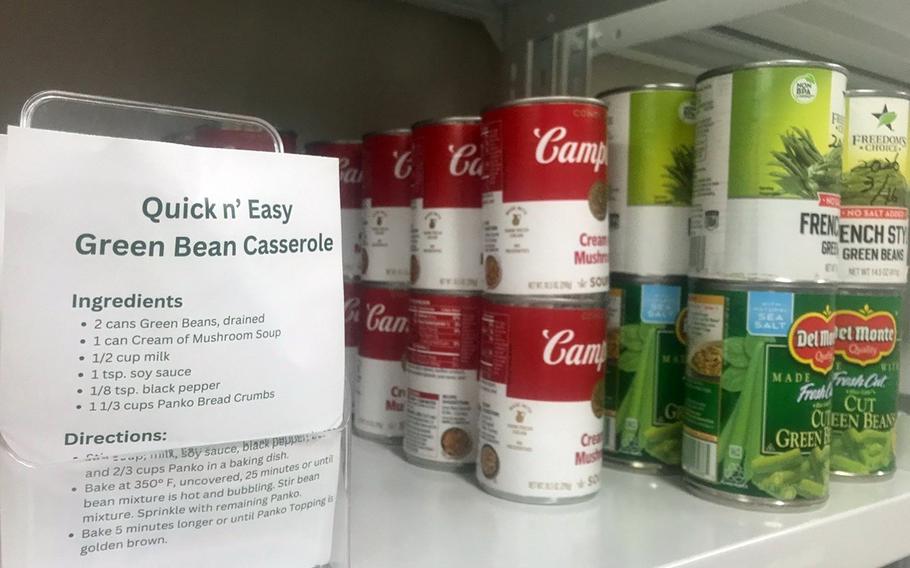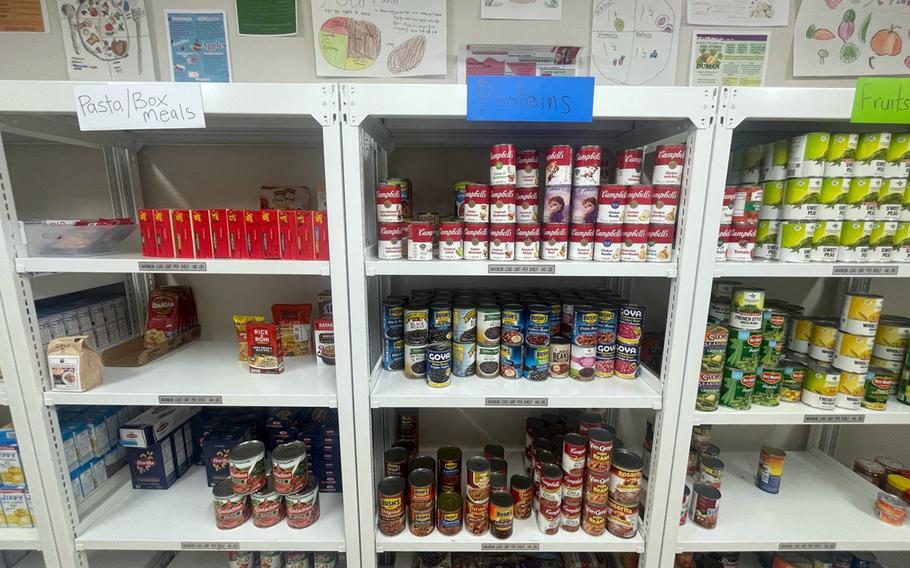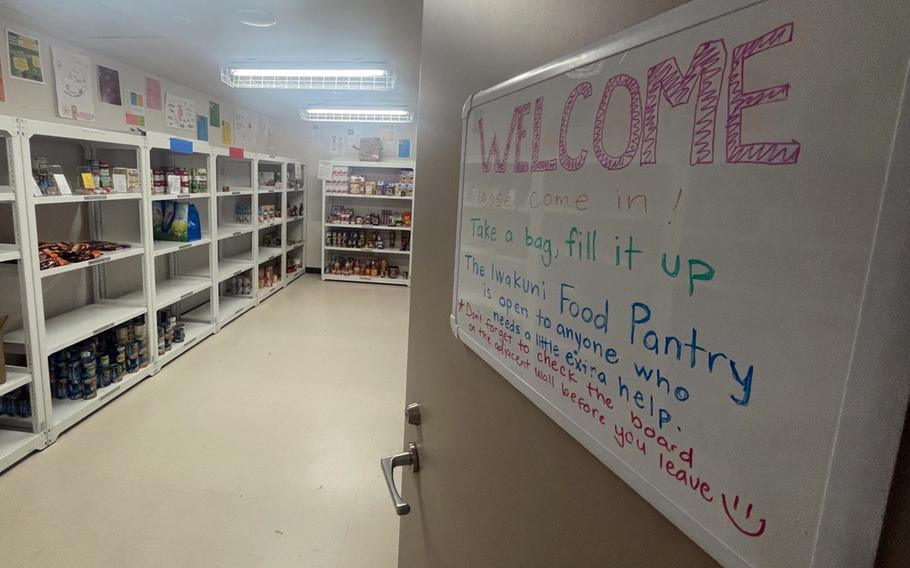
An expanded food pantry opened its doors in November at Marine Corps Air Station Iwakuni, Japan. (Jonathan Snyder/Stars and Stripes)
MARINE CORPS AIR STATION IWAKUNI, Japan — Marine bases in Japan recently opened one new food pantry and expanded another to ease persistent food insecurity that affects one-fourth of all U.S. military members.
The Neighborhood Pantry debuted in November at Camp Foster, Okinawa, to all service branches and ranks. An expanded Iwakuni Food Pantry reopened that same month in a new location at MCAS Iwakuni, south of Hiroshima.
Some U.S. service members and their spouses are uncertain about how they will feed their families, studies continue to show. Military families, no matter where they’re stationed, are susceptible to the same economic tides that affect any household budget.
“There’s no doubt the economy, inflation, high costs of items such as food, gas, housing, cars, home and car insurance can wreak havoc on anyone’s finances,” Dawn Cutler, Navy-Marine Corps Relief headquarters chief operations officer, told Stars and Stripes by email Monday.
Generally, 26% of U.S.-based service members and 23% of those overseas report food insecurity, defined as an economic or social condition that limits access to food, according to a January 2023 Rand report. Rand prepared “Food Insecurity in the U.S. Military” for Congress on behalf of the Defense Department.

An expanded food pantry opened its doors in November at Marine Corps Air Station Iwakuni, Japan. (Jonathan Snyder/Stars and Stripes)
Military members in grades E-4 to E-6, the bulk of the enlisted population, were more likely to report food insecurity, according to a 2018 Rand report.
However, those lower ranks more frequently turned to SNAP, the Supplemental Nutrition Assistance Program, once known as food stamps, to feed their families, according to Rand.
Navy spouse Faith Henderson said the Iwakuni Food Pantry helps her stretch her family’s financial resources.
“We’re already on WIC,” she said Thursday at the pantry, referring to the U.S. government program that provides nutrition assistance to low-income women, infants and children. “It also gives me meal ideas coming here.”
An average of 77 people visit Foster’s pantry each month, Jen Hall, a Navy spouse and assistant pantry director, said by phone April 8. The MCAS Iwakuni pantry gets about 100 monthly visitors, Marine spouse and pantry director Sara Shoop said during an interview April 9.
“We’ve had over 12,000 pounds of food donated in less than six months and have distributed over 10,000 of those pounds,” Hall said.
The relief society director at MCAS Iwakuni, Christina Grantham, said she noticed a sizeable increase in loans to service members during the summer months, when school is out, and kids are eating at home more often.

An expanded food pantry opened its doors in November at Marine Corps Air Station Iwakuni, Japan. (Jonathan Snyder/Stars and Stripes)
Last year, service members at the air station self-reported that 44% of the $344,129 in no-interest loans went toward basic living expenses, including food, she told Stars and Stripes on April 9.
Three hundred of the 1,118 students enrolled in MCAS Iwakuni schools are part of the free and reduced lunch program, Karen Altig, Marine Corps Community Services School Meal Program manager, said by email April 12.
“Most of the people that are going to the food pantry for help have just moved here and have this huge credit card debt,” Shoop said. “And now they would need to go to the commissary and fill their pantry with spices, flour and sugar.”
At Foster, Hall said finding a location and operational planning were the most difficult parts of creating a food pantry.
“Beginning that was crucial,” she said, “and then the donations just started coming.”
Cash donations allowed the pantry to purchase a refrigerator to offer fresh dairy, frozen vegetables and breakfast items.
“We are able to purchase local produce to have in our pantry on a weekly basis,” she said.
The pantry also started a monthly delivery to smaller bases on northern Okinawa in partnership with Foster’s thrift shop. The pantry piggybacks bags of food on thrift store trucks heading north to pick up donations, she said.
“Ideally we would like to not have to exist,” Hall said. “And hopefully our powers that be will help but until then we’re going to keep doing what we’re doing.”